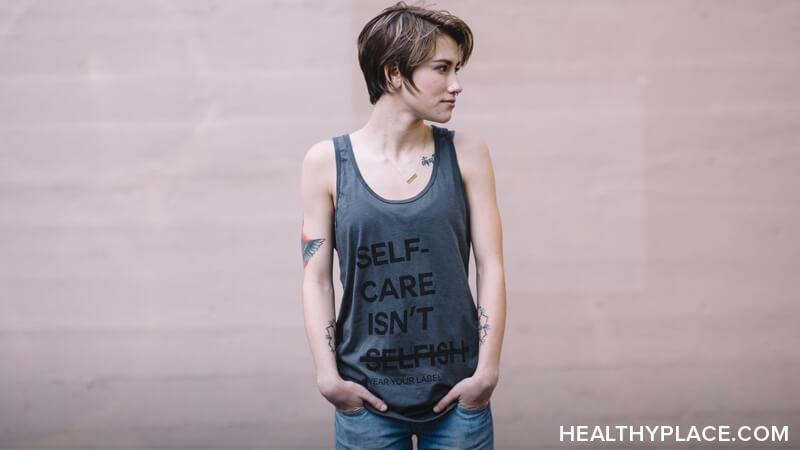Self-Care for Anxiety? But that Causes More Anxiety

Self-care is highly recommended for managing and treating anxiety. Practicing self-care can, indeed, be very effective, allowing us to step away from stress and other anxiety-provoking situations to give ourselves a much-need break. Stepping away from the rush of daily life to reset can shift anxious thoughts and settle roiling emotions, allowing us to revitalize both physically and mentally--in theory, anyway. In practice, for many people with anxiety, engaging in self-care activities can actually cause more anxiety. What happens then?
The Nature of Self-Care for Anxiety
Regularly practicing self-care, working even small breaks into every day, can reduce the effects of anxiety. Self-care activities for anxiety are seemingly endless and can include (but are no means limited to):
- Exercising (indoor or outside, with others or solo)
- Pursuing an enjoyable hobby
- Reading
- Creating art
- Listening to music
- Playing music
- Meditating
- Relaxing in a warm bath with bath bombs and candles
- Enjoying aromatherapy
Such endeavors provide a much-needed shift away from stress and negative thoughts. Theoretically, because there is no "right" or "wrong" way to practice self-care (as long as the activity isn't dangerous or unhealthy to self or others), it's perfect for those of us who experience anxiety. There's no pressure to do one activity over another, and we can tailor the experience to our own interests and personality.
Yet for many people with anxiety (for years, I was among them), practicing self-care actually increases anxiety. Why is this?
Why the Idea of Self-Care Can Exacerbate Anxiety
What's going on here? Self-care is designed to soothe anxiety. I used to tell myself this all the time, yet the intellectual knowledge that self-care was good for me did nothing to soothe the anxiety that skyrocketed every time I tried to do something to help myself.
This issue isn't the nature of self-care. It's the nature of anxiety. Anxiety tells us that self-care is a terrible thing to do. Taking time for ourselves to just enjoy life, accuses anxiety, is
- Selfish
- Lazy
- A waste of time
- Unproductive
- The path toward unmet goals
- Illogical (That argument says we need to take care of ourselves so we can be there for others just makes no sense, says anxiety. To be there for others means taking care of others, not ourselves.)
It's true. In the past, every time I would try to do some form of self-care, no matter how much I liked the activity, I felt anxious just for doing it. Rather than letting go, relaxing, and simply being present in the given activity, my mind would race with negative, self-accusatory thoughts, and I'd imagine all sorts of negative consequences that would most certainly happen because I was lazy and self-indulgent enough to do something enjoyable for myself.
It has taken patience and time, but I have a new relationship with self-care (and myself and anxiety) now. I invite you to tune in to the video to hear my number one tip for reducing anxiety about practicing self-care.
APA Reference
Peterson, T.
(2020, October 29). Self-Care for Anxiety? But that Causes More Anxiety , HealthyPlace. Retrieved
on 2026, March 1 from https://www.healthyplace.com/blogs/anxiety-schmanxiety/2020/10/self-care-for-anxiety-but-that-causes-more-anxiety